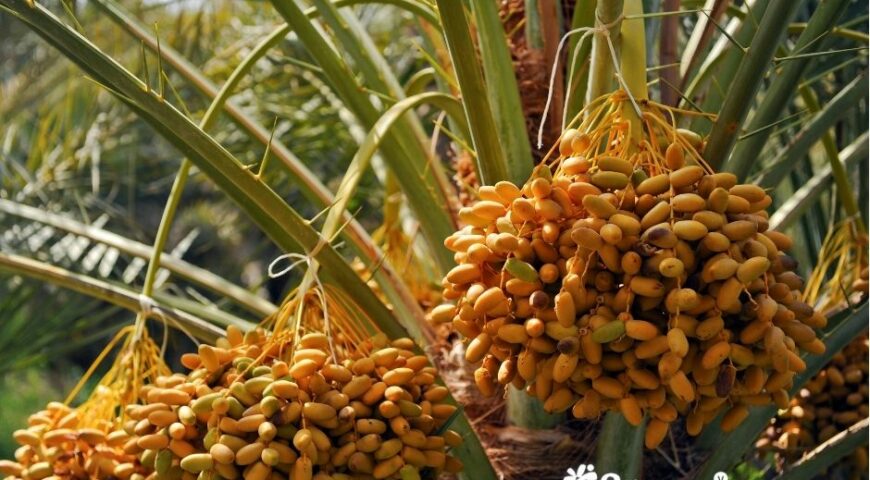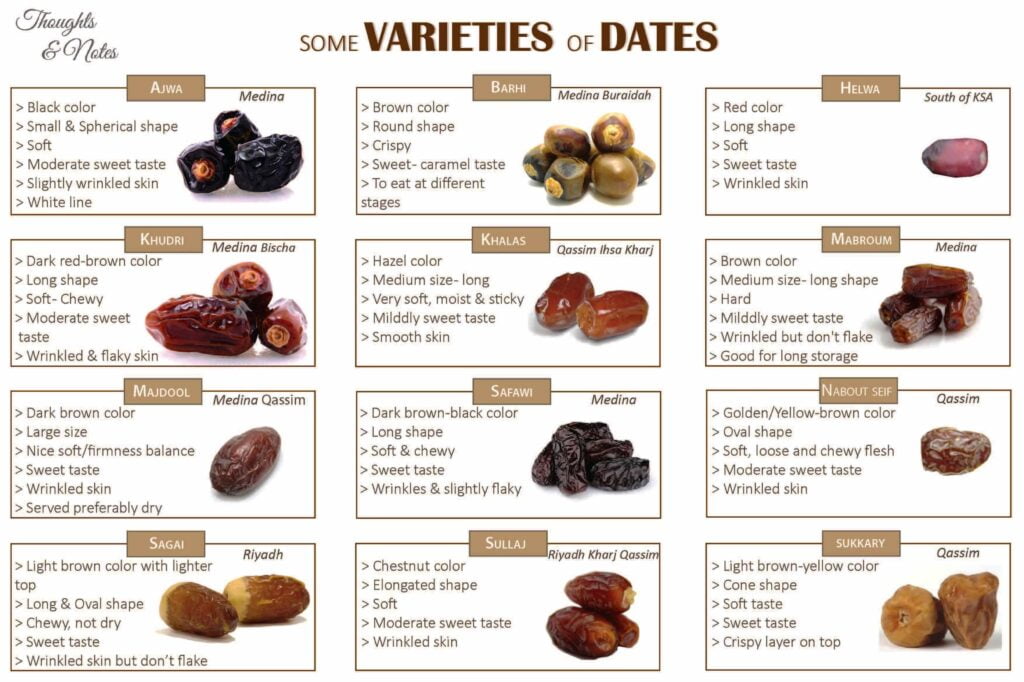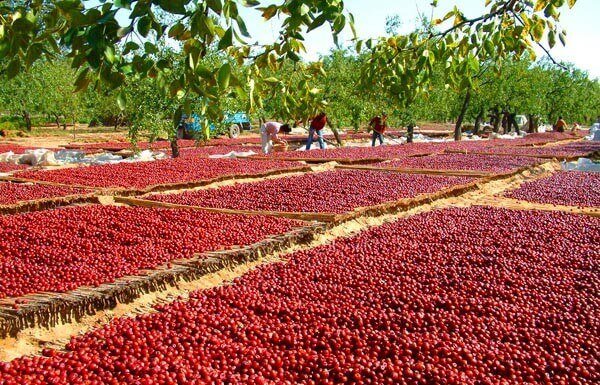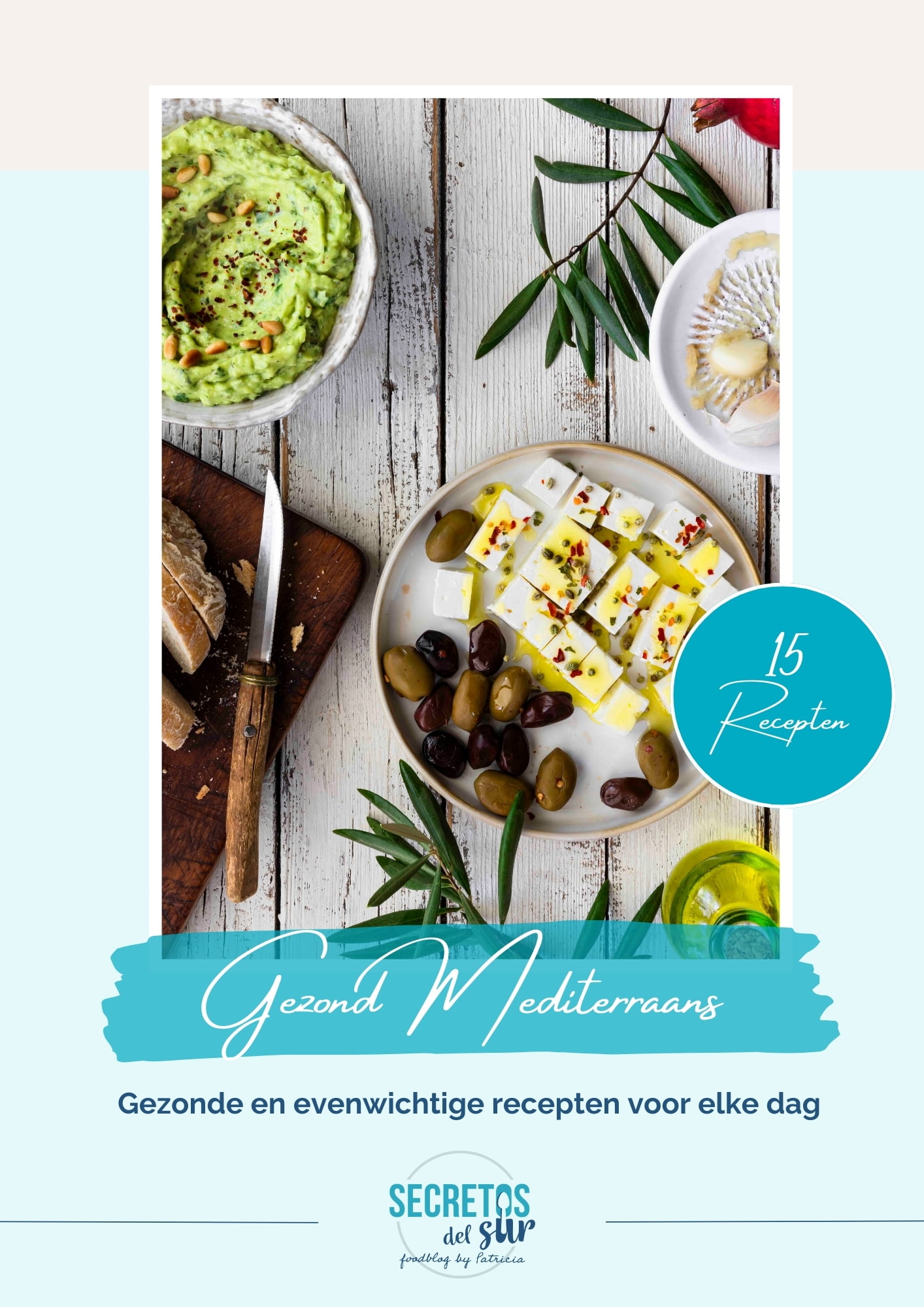The power of dates…

In the world of healthy snacks, dates are an all-time favorite. Loved for their versatility and nutritious properties.
CONTENT:
Dates are a deliciously sweet and nutritious fruit that have been eaten for centuries in various cultures. Whether you’re a fan of healthy snacks, looking for natural sweeteners, or just want to try something new, dates are an excellent choice.
In this guide, we explore the benefits, uses and tips for buying and storing dates.
What are dates?

Dates are the fruit of the date palm, a tree that grows primarily in dry, tropical climates such as those in the Middle East and North Africa. There are several varieties of dates, but the most famous are Medjool, Deglet Noor and Barhi. Medjool dates are large, fleshy and very sweet, while Deglet Noor dates are slightly smaller and less sweet.

How are dates harvested and prepared for consumption?


Harvesting and preparing dates is a careful process that combines traditional methods with modern techniques to ensure the highest quality. Here I give an overview of how this works:
Harvesting process of dates
- Growth and maturation:
- Flowering: Dates grow in large clusters on date palms. The trees begin to bloom in the spring, with each flower developing into a date fruit.
- Ripening: The dates ripen in the summer months. There are four stages of ripening: Kimri (unripe), Khalal (semi-ripe), Rutab (ripe) and Tamr (fully ripe and dried on the tree).
- Manual harvest:
- Timing: The exact harvest time depends on the desired ripeness. For fresh dates, harvesting takes place during the Khalal or Rutab stages, while dates intended for drying are harvested during the Tamr stage.
- Methods: Dates are usually harvested by hand to prevent damage to the fruit. Workers climb trees or use ladders to reach the bunches. The bunches are carefully cut loose and brought down.
- Sorting: After harvesting, the dates are sorted by size, color and ripeness.
Preparation process of dates
- Cleaning:
- Washing: The dates are thoroughly washed to remove dust, sand and other impurities. This is usually done using advanced washing machines.
- Drying:
- Natural Drying: For dried dates, the traditional method of sun drying is still widely used. The dates are spread out on drying racks and exposed to the sun until they are completely dry.
- Mechanical Drying:In modern facilities, dates are often dried in controlled conditions using drying ovens. This ensures consistent quality and hygiene.
- Pasteurization:
- Hygiene: To kill any bacteria or fungi and extend their shelf life, dates are often pasteurized. This process involves briefly exposing the dates to high temperatures.
- Processing:
- Deseeding: Many dates are pitted to make them easier to eat and use in recipes. This is usually done mechanically.
- To fill: Some dates are filled with nuts, cheese, or other fillings for an extra dimension of flavor.
- Coaten: Dates can also be coated with sugar or syrup for extra sweetness.
- Packaging:
- Packaging: After drying and processing, the dates are packed in airtight containers to maintain freshness and quality. Modern packaging methods ensure that the dates are protected against moisture and pests.
- Tagging: Packaging is labeled with information about origin, expiration date and nutritional value.



Tips for home use
- Storage: Store fresh dates in an airtight container in the refrigerator. Dried dates can be stored at room temperature.
- Preparation: If you find dates too dry, you can soak them in warm water to soften them again.
- Cooking and Baking: Use dates as a natural sweetener in smoothies, pastries and desserts, or eat them as a healthy snack.
Nutritional value of dates
Dates are not only delicious, but also very nutritious. They are a good source of:
- Fiber: Helps with healthy digestion and keeps you feeling full for longer.
- Vitamins: Contain vitamin B6, niacin, and pantothenic acid, which contribute to a healthy metabolism.
- Minerals: Rich in potassium, magnesium, and copper, which are essential for various bodily functions.
- Antioxidants: Contain flavonoids, carotenoids and phenolic acids, which help fight inflammation and reduce the risk of chronic diseases.
Health benefits of dates
- Energy boost: Dates are an excellent source of natural sugars such as glucose, fructose and sucrose, providing a quick and long-lasting energy boost.
- Healthy Digestion: The fiber in dates helps promote healthy digestion and can prevent constipation.
- Bone health: The presence of minerals such as calcium, phosphorus, and magnesium can contribute to strong and healthy bones.
- Brain health: Some studies suggest dates may help improve cognitive functions and reduce inflammation in the brain
Disadvantages of dates
While dates can be a nutritious and delicious part of your diet, there are some drawbacks and considerations to keep in mind. Here are some possible disadvantages of consuming dates:
1. High Sugar Content
- Natural Sugar: Dates contain high levels of natural sugars such as fructose, glucose, and sucrose. Although these sugars are natural, they can still contribute to elevated blood sugar levels.
- High-calorie: Due to their high sugar content, dates are also quite high in calories, which can contribute to weight gain if consumed in excess.
2. High Glycemic Index
- Blood Sugar Levels: Dates have a high glycemic index (GI), meaning they can quickly lead to a rise in blood sugar levels. This can be especially a problem for people with diabetes or insulin resistance.
3. Dental health
- Sugar and Tooth Decay: The high sugar content in dates can contribute to tooth decay, especially if they are eaten frequently and if oral hygiene is not optimal.
- Stickiness: Dates are sticky, meaning they can stick to teeth and remain in contact with tooth enamel for longer, which can increase the risk of cavities.
4. Fiber Content and Digestive Problems
- Excessive Consumption: Although fiber is good for digestion, consuming too many dates can lead to digestive problems such as bloating, gas and diarrhea.
- Allergic Reactions: Some people may be allergic to dates, which can lead to symptoms such as rash, itching, or even more serious reactions such as breathing problems.
5. Calorie density
- Portion control: Due to their high calorie density, it can be easy to eat too many dates, which can lead to excess calorie intake. This is something to keep in mind as you try to control your calorie intake.
6. Potassium content
- Kidney problems: Dates are high in potassium, which is usually beneficial. However, for people with kidney problems, high potassium intake can be dangerous because their kidneys may have difficulty filtering excess potassium from the blood.
7. Storage and Mold Formation
- Short Shelf Life: Fresh dates have a relatively short shelf life and must be stored properly to prevent spoilage.
- Mold risk: If dates are not stored properly, they can become moldy, which poses health risks.
Uses of dates in the kitchen
Dates are versatile and can be used in various ways in the kitchen:
- Natural Sweetener: Use dates as a natural sweetener in smoothies, baked goods, and desserts.
- Snack: Eat dates straight from your hand as a healthy snack.
- Stuffed Dates: Fill dates with nuts, cream cheese or peanut butter for a delicious snack.
- Salads: Add sliced dates to salads for a sweet and nutritious twist.
- Energy Balls: Mix dates with nuts and seeds to make energy balls that are perfect for a quick snack on the go. (example: My son sometimes runs 1/2 marathon and the only snack he brings with him are pitted dates…)
Tips for buying and storing dates
- Buy: Choose dates that are full and shiny. Avoid dates that feel dry and hard.
- Storage: Store fresh dates in an airtight container in the refrigerator to maintain their freshness. Dried dates can be stored at room temperature.
- Use: If you find dates too dry, you can soak them in warm water to soften them again.
Conclusion
Dates are a nutritious and versatile fruit that can easily be included in a healthy diet. Whether you use them as a natural sweetener, snack, or ingredient in various dishes, dates offer numerous health benefits and culinary possibilities. But due to their high sugar content and high calorie value, dates also have some disadvantages. But I am definitely in favor of adding dates to your dish and replacing regular sugars with this delicious fruit. Enjoy the sweet benefits they have to offer, in moderation!

Download my E-book

This booklet is my culinary ode to the Mediterranean cuisine; a collection of flavors and aromas that embody my passion for cooking, intended to inspire or enrich both the experienced chef and the home cook with the simplicity and purity of Mediterranean tastes. Easy recipes, accessible to everyone, and with a broad palette of flavors.
Order here
Foodblog
by Patricia
I am Patricia, energetic 40'er, architect, business manager and food blogger. Living in Andalusia but from Flanders - Belgium. Mother of 2 active and creative kids who, together with my husband Geert, form the tasting team of the first order!
Cooking has become a passion. Everything starts with devising an original recipe and that’s when my love for food photography & styling comes across…
In my blog you will get to know my healthy Mediterranean fusion cuisine!
Buen provecho!
Nieuwsbrief
Subscribe to our newsletter and stay informed about the latest news and amazing recipes.




Leave a Reply